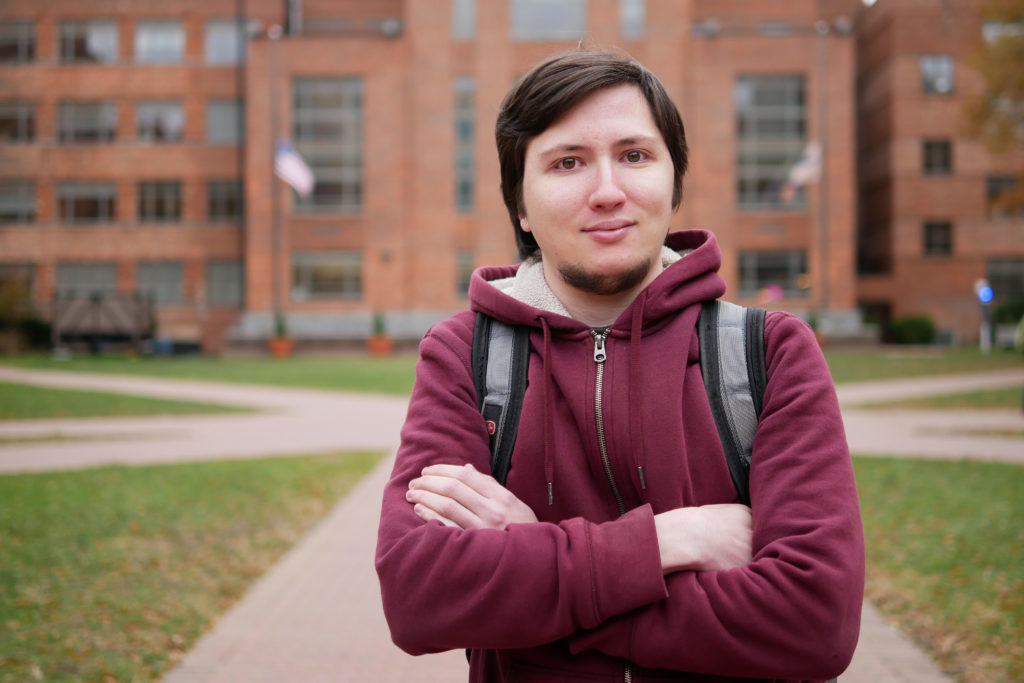A student organization will host training sessions this spring to make other organizations more mindful of disabilities.
Members of the Disabled Students Collective will launch trainings next semester for student organizations that want to increase accessibility for disabled students in their organizations. Student leaders said the training – which covers topics like accessible buildings where students can host events and how to communicate with someone about their disability – will ensure students’ disabilities don’t limit their involvement in campus life.
The PowerPoint presentation includes information about accessibility, ableism and discrimination laws covered under the Americans with Disabilities Act. The training also includes ways for student organizations to make their events more wheelchair and sensory accessible, like limiting flashing lights and loud music, members said.
“What we hope this training does in the long run is open up students, and also faculty and staff who want to participate as well, to the way that people with disabilities have to lead their lives,” senior Zachary McGinley, the president and co-founder of the Disabled Students Collective, said.
Students in the Disabled Students Collective, who will present the training, said they will host sessions up to three times a month, depending on how many student organizations indicate interest. The group will advertise the training through social media, and student organizations can also contact the Disabled Students Collective to participate in a training session, members said.
Students in the collective said they decided to create the training after they noticed many other student organizations do not know how to make their events physically accessible or provide a space where students with disabilities feel comfortable. Students have criticized the University in recent years for having several inaccessible buildings that are difficult to navigate for students with physical disabilities.
While the Disabled Students Collective did not work heavily with officials on the training, members said they met Tuesday with Cissy Petty, the dean of the student experience, to discuss why they want to organize the training sessions.
“I was happy to meet with a group of students from the Disabled Students Collective earlier this week,” Petty said in an email Friday. “They are planning their events and activities for the spring semester, and I learned more about what they are planning.”
Petty declined to say how she hopes the training will impact students.
Sophomore Carly Lloyd, the vice president of the Disabled Students Collective, said students with “invisible disabilities” that aren’t immediately apparent often encounter accommodation issues at student organization events because students don’t know what an individual needs. She said the training will include information about how to determine if an individual has a hidden disability in the training.
“Just because someone isn’t in a wheelchair, or something visible, doesn’t mean they aren’t disabled,” she said.
Lloyd said several student organizations, including TedXFoggyBottom and the Panhellenic Council, also asked the organization for training last semester “because they had some issues with accessibility” at events, she said.
Lloyd said she hopes the training will shed light on the number of students who want to be more involved in student organizations but can’t because of their disability.
“There has to be a need for you to offer a solution,” Lloyd said. “We wanted to make sure all students are getting the best experience on campus as possible.”
Junior Luana Kiwakana, the treasurer of the Disabled Students Collective, said she noticed that even though the University implemented mandatory diversity training for incoming students over the summer, the training did not include information about students with disabilities.
Kiwakana said she wanted to host the training because many people are ableist without realizing it or do not consider how the location of an event or attendance requirements for an organization may harm people with disabilities.
“The fact that we can’t access those kinds of social things, those kinds of opportunities, just because something physical or mental that the others don’t get, is a shame for me,” Kiwakana said.





